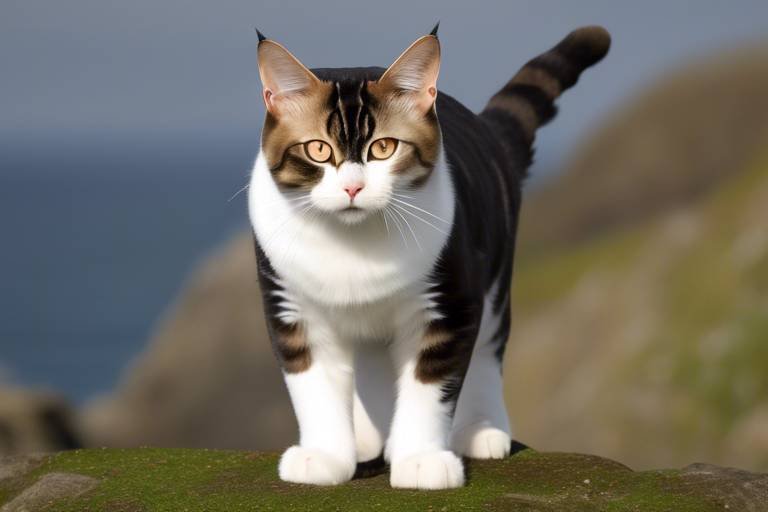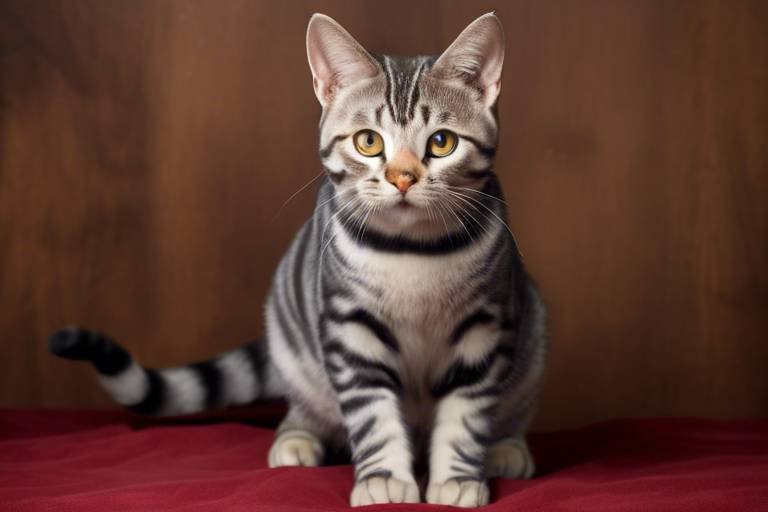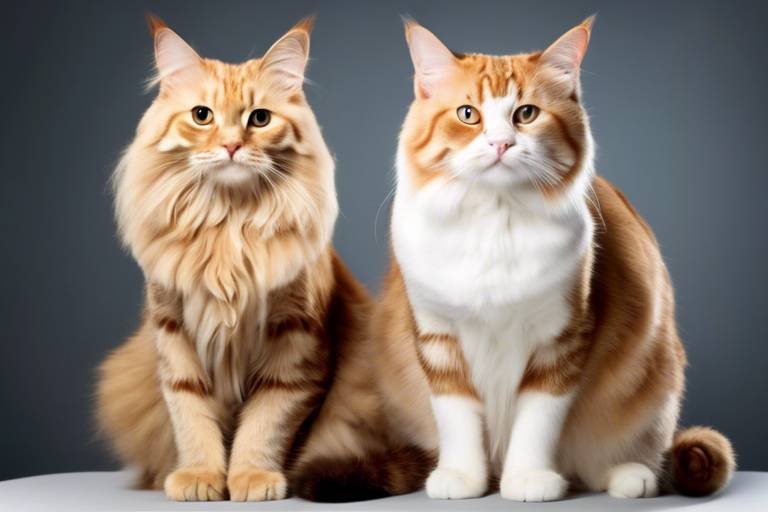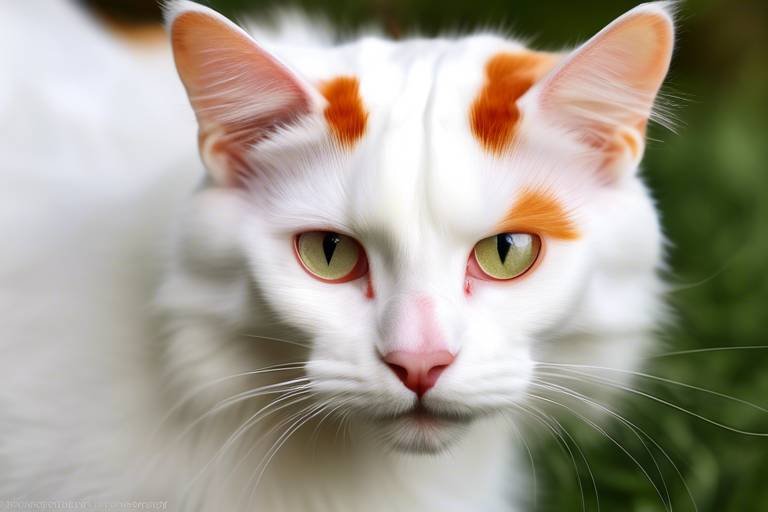Understanding the Personality of the Manx Cat
The Manx cat is not just a breed; it's a delightful blend of quirks and charm that captivates anyone who crosses its path. With their distinctive taillessness and playful demeanor, these cats have carved a niche for themselves in the hearts of feline enthusiasts. If you've ever wondered what makes a Manx cat tick, you're in for a treat! This article dives deep into their unique personality traits, shedding light on why they are such beloved companions.
First off, let's talk about their playful nature. Manx cats are known for their boundless energy and love for playtime. Imagine a little furball darting around your living room, chasing after a feather toy with the enthusiasm of a child in a candy store. Their playful antics not only entertain but also keep them physically fit. It's no wonder that many owners find themselves laughing out loud at their Manx's silly stunts!
Moreover, Manx cats are incredibly sociable. They thrive on interaction, whether it's with their human companions or other pets. Have you ever seen a cat that greets you at the door, tail high (or in this case, nonexistent), ready to shower you with affection? That's the Manx for you! They are known to form strong bonds with their families, often following their humans from room to room, just to be part of the action. This affectionate disposition makes them excellent companions, especially for families with children or other pets.
But what about their intelligence? Manx cats are not just pretty faces; they are also quite clever. They possess a natural curiosity that drives them to explore their surroundings. This intelligence can be harnessed during training sessions, where they can learn tricks or respond to commands. Think of them as little furry Einsteins, always eager to learn and engage. However, their intelligence also means they can get bored easily, so keeping their minds stimulated with interactive toys or puzzles is essential.
In terms of behavior, Manx cats are known for their mellow temperament. They tend to be calm and adaptable, making them suitable for various living situations, from bustling households to quieter homes. Their laid-back attitude doesn't mean they're couch potatoes, though! They enjoy a good romp around the house and are often found perched in high places, surveying their kingdom.
One of the most fascinating aspects of a Manx cat's personality is how they handle social interactions. They are generally friendly and welcoming to strangers, which can be a refreshing change from the typical aloofness associated with many other cat breeds. This openness often leads to delightful encounters, where guests are treated to a purring ball of fluff seeking attention. It's like having a little ambassador of joy in your home!
In summary, the personality of the Manx cat is a delightful combination of playfulness, sociability, intelligence, and a calm demeanor. They are not just pets; they are family members who bring joy, laughter, and companionship into our lives. If you're considering adding a Manx to your family, be prepared for a whirlwind of fun and affection!
- Do Manx cats require special care due to their lack of tail?
No, they do not require special care, but it's important to monitor their health regularly as they can be prone to certain genetic issues. - Are Manx cats good with children?
Yes, their friendly and playful nature makes them great companions for children. - Can Manx cats be trained easily?
Yes, they are intelligent and respond well to training, especially when positive reinforcement is used. - What is the lifespan of a Manx cat?
On average, Manx cats live between 8 to 14 years, depending on their health and care.
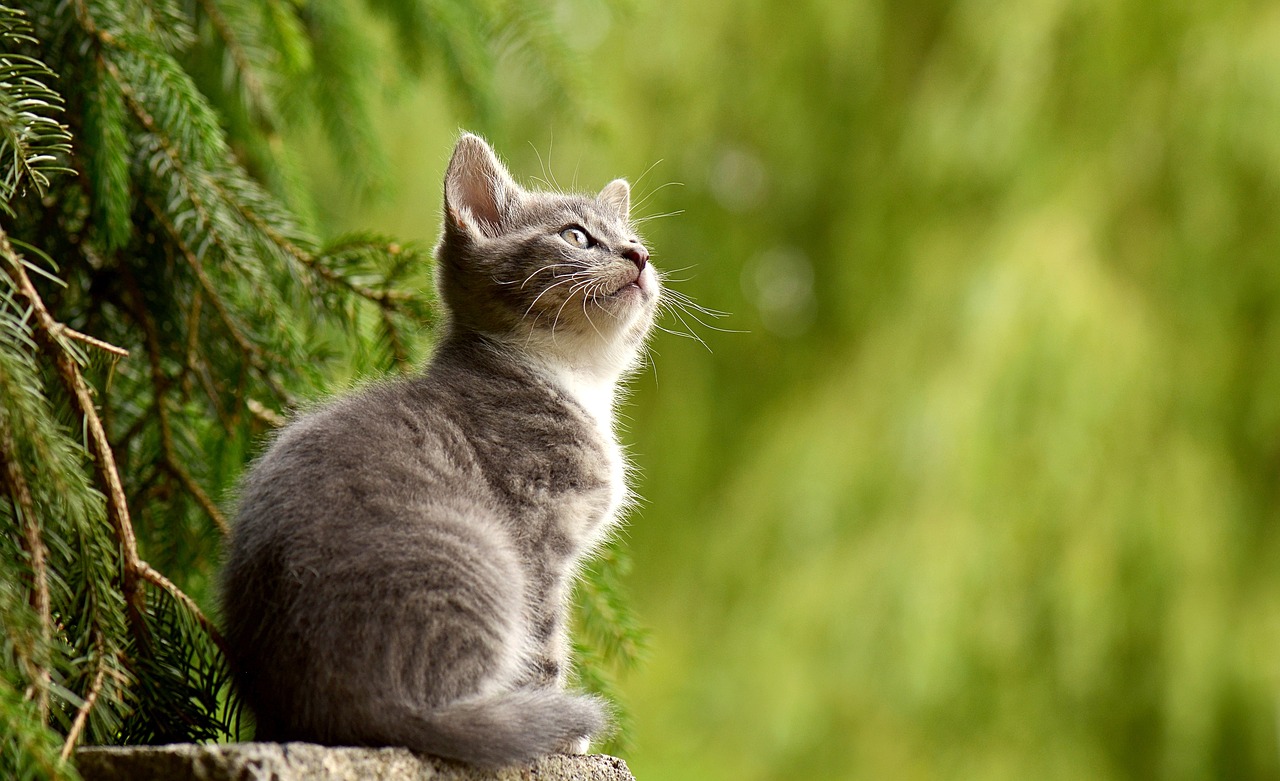
Origin and History
The Manx cat has a captivating history that is steeped in the rich culture of the Isle of Man, a small island located in the Irish Sea. This breed is not just a pet; it’s a symbol of the island's heritage. Legend has it that the Manx cat's taillessness is due to a genetic mutation that emerged on the island, but some stories suggest a more mythical origin. One tale even claims that these cats were the result of a cross between a cat and a rabbit! While that may sound far-fetched, it certainly adds to the charm of this unique breed.
Historically, the Manx cat was known for its hunting prowess, particularly in controlling the rodent population on farms. Their lack of a tail, which is a defining characteristic, is thought to have evolved as an adaptation to their environment, making them agile and stealthy hunters. The breed gained popularity in the 19th century, particularly when they were showcased at cat shows in England. Breeders began to take a keen interest in the Manx, leading to a variety of tail lengths, from completely tailless to those with a stubby tail.
As the breed continued to develop, they became known not just for their physical traits but also for their vibrant personalities. The Manx cat is celebrated for its playful and affectionate nature, which has endeared it to families and cat lovers worldwide. Their unique appearance and engaging demeanor have made them a sought-after breed, and today, they can be found in homes across the globe.
Interestingly, the Manx cat's genetic makeup has also led to some health considerations. The gene responsible for their lack of a tail can sometimes result in spinal issues, which is a reminder that while their history is fascinating, responsible breeding practices are essential for maintaining the health of the breed.
In summary, the origin and history of the Manx cat are as intriguing as the cats themselves. From their legendary beginnings on the Isle of Man to their rise as beloved companions, these cats have a story that captivates the hearts of many. Understanding their background not only enriches our appreciation for them but also highlights the importance of responsible pet ownership and breeding practices.
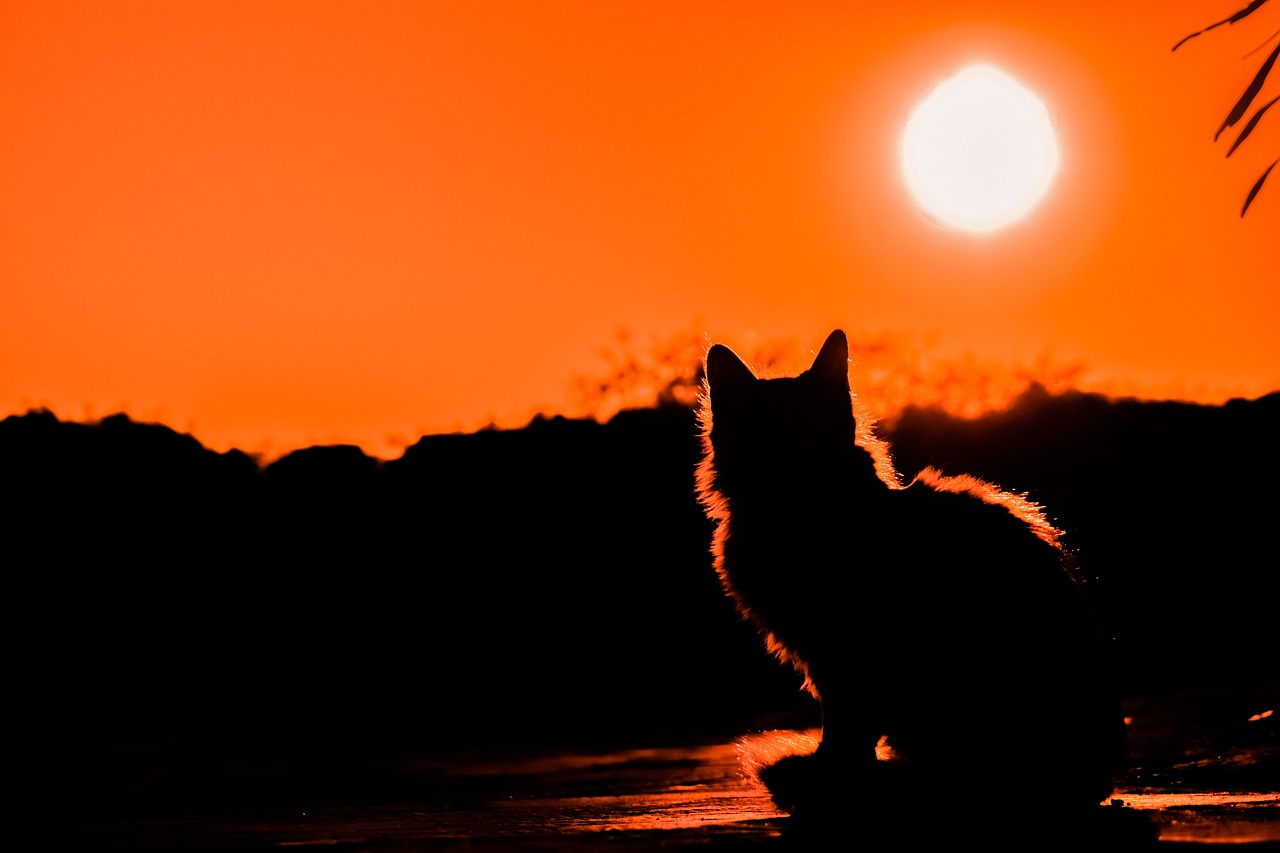
Physical Characteristics
The Manx cat is a breed that captures attention not just for its charming personality, but also for its distinctive physical traits. One of the most notable features of the Manx is its taillessness, which is a result of a natural mutation. This characteristic gives them a unique silhouette that sets them apart from other cat breeds. While some Manx cats may have a small stub of a tail, many are completely tailless, earning them the affectionate nickname of "rumpies." It's fascinating to think about how this trait developed on the Isle of Man, where these cats roamed freely, adapting to their environment in ways that other breeds did not.
In addition to their tail, Manx cats boast a strong, muscular build. They are medium to large in size, with a robust body that exudes strength and agility. Their rounded head, wide eyes, and short neck add to their adorable appearance. The eye color of a Manx can vary, ranging from copper to gold, and even green, depending on their coat color. Speaking of coats, the Manx has a dense, plush coat that can come in a variety of colors and patterns, including tabby, solid, and tortoiseshell. This luxurious fur not only enhances their beauty but also provides them with warmth and protection.
When it comes to their legs, Manx cats are known for their powerful hindquarters, which contribute to their impressive jumping ability. They are agile and quick, making them playful companions. The front legs are slightly shorter than the back legs, which adds to their unique gait. Watching a Manx cat move is like seeing a little ball of energy bounce around, full of life and enthusiasm.
To summarize, the physical characteristics of the Manx cat play a significant role in shaping their overall personality. Their unique traits not only make them visually appealing but also contribute to their playful and agile nature. If you're considering adopting a Manx, it's essential to appreciate these physical attributes as they are a big part of what makes this breed so special.
| Physical Trait | Description |
|---|---|
| Tail | Typically tailless, some may have a small stub |
| Body Size | Medium to large, muscular build |
| Head Shape | Rounded head with wide eyes |
| Coat | Dense and plush, available in various colors and patterns |
| Legs | Powerful hindquarters, front legs shorter than back legs |
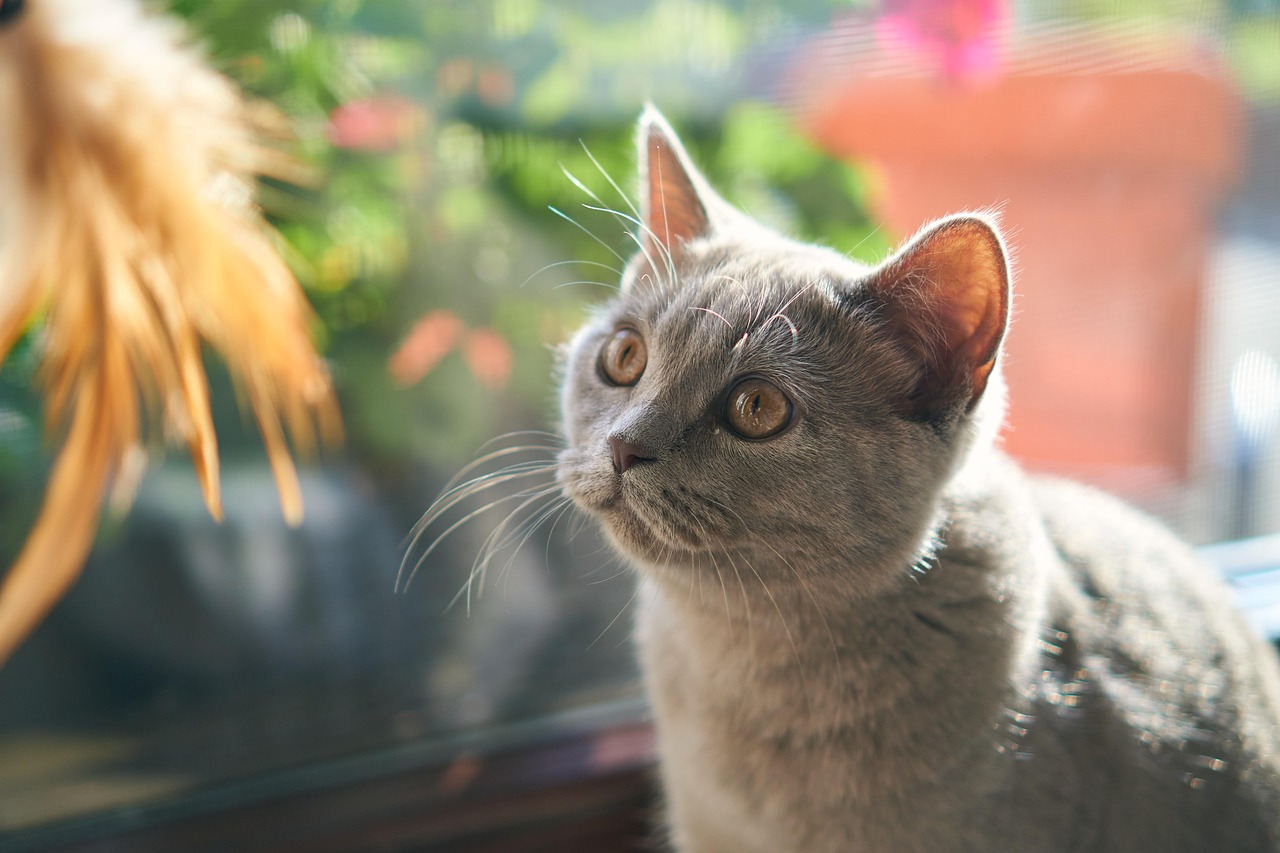
Temperament Overview
The Manx cat is not just a pretty face; their personality is a captivating blend of traits that make them truly special companions. One of the first things you'll notice about a Manx is their affectionate nature. These cats are known for forming strong bonds with their human families, often following them around the house like a loyal shadow. They thrive on interaction, and their playful antics can bring joy and laughter to any household. Imagine coming home after a long day, only to be greeted by a furry friend who is eager to share in your happiness—this is the essence of a Manx cat!
What sets the Manx apart from other breeds is their playfulness. They are incredibly curious and love to explore their surroundings. Whether it's chasing after a feather toy or pouncing on a laser dot, their energy is contagious. They can turn even the most mundane objects into toys, showcasing their ability to find fun in everyday life. This playful spirit means that they require regular engagement and stimulation, so be prepared to invest time in interactive play sessions. After all, a bored Manx is a mischievous Manx!
In terms of sociability, Manx cats are generally extroverted and enjoy the company of both humans and other pets. They have a knack for getting along with dogs and other cats, making them an excellent choice for multi-pet households. Their friendly demeanor often leads them to be the life of the party, and they are known to greet guests with an enthusiastic purr or a playful leap. It's not uncommon for a Manx to curl up in the lap of a visitor, seeking affection and attention from anyone willing to give it.
However, their sociable nature also means they can be sensitive to changes in their environment. A sudden shift, such as moving to a new home or the arrival of a new pet, can be a bit stressful for them. Therefore, it's essential to introduce any changes gradually and provide plenty of comfort and reassurance. You might even consider creating a safe space for your Manx, where they can retreat if they feel overwhelmed. This will help them adjust while allowing their true personality to shine through.
Another remarkable aspect of the Manx temperament is their intelligence. These cats are quick learners and can be taught various tricks and commands. Their inquisitive nature means they enjoy problem-solving activities, such as puzzle toys that challenge their minds. Engaging their intellect is just as crucial as physical play, as it keeps them stimulated and happy. Training sessions can be a fun way to bond with your Manx while also ensuring they are well-behaved and responsive.
In summary, the temperament of the Manx cat is a delightful mix of affection, playfulness, sociability, and intelligence. They are the kind of companions who bring both joy and a little bit of chaos into your life. If you're considering welcoming a Manx into your home, be prepared for a furry friend who will not only entertain you but also shower you with love and companionship. With their unique personality traits, Manx cats truly are a breed apart!
- Are Manx cats good with children? Yes, their friendly and playful nature makes them great companions for children.
- Do Manx cats require special grooming? While they have a short coat, regular brushing helps minimize shedding and keeps their fur healthy.
- Can Manx cats live in apartments? Absolutely! They adapt well to smaller living spaces as long as they receive enough playtime and stimulation.
- Are Manx cats prone to any health issues? Yes, they can be prone to certain genetic conditions, so regular vet check-ups are essential.
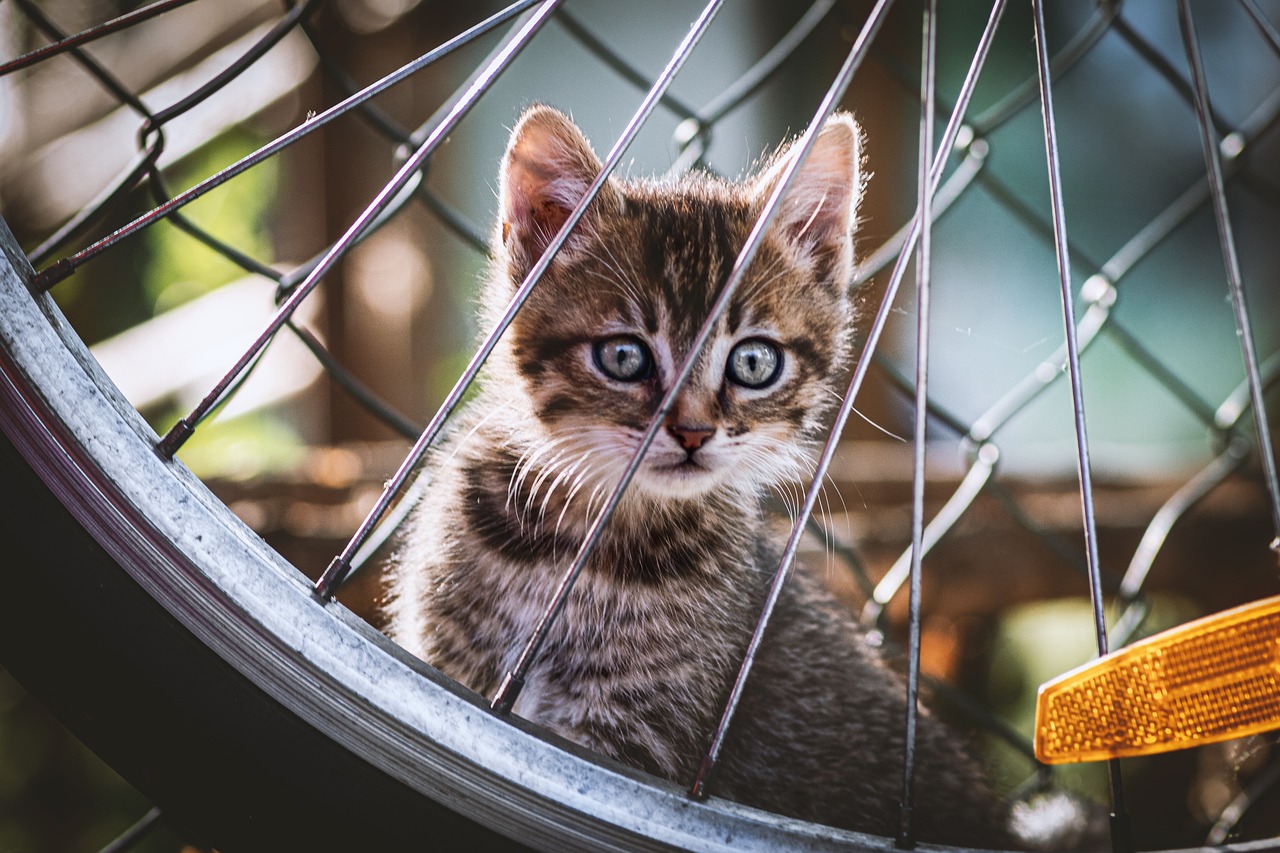
Social Behavior
When it comes to the of Manx cats, these charming felines are anything but ordinary. Known for their friendly and playful demeanor, they thrive on interaction, both with humans and other pets. Imagine coming home after a long day, and instead of retreating into a corner, your Manx cat greets you with a cheerful chirp, tail (or lack thereof) held high, ready to engage in some quality playtime. This breed is often described as affectionate, and they have an innate ability to form strong bonds with their human companions.
One of the most delightful aspects of a Manx cat's personality is their playfulness. These cats are natural entertainers, often turning the simplest household items into toys. Whether it's a crumpled piece of paper or a dangling string, you can bet your Manx will be right there, pouncing and frolicking with unbridled enthusiasm. Their playful antics not only keep them active but also serve as a source of joy for their owners. It's like having a little comedian in your home, always ready to lighten the mood!
Moreover, Manx cats are known to be quite sociable. They generally get along well with other pets, including dogs, which is somewhat surprising for a cat. Their friendly nature allows them to coexist harmoniously, often engaging in playful chases or cuddling up together for a nap. This sociability makes them an excellent choice for families, as they can adapt to various household dynamics without much fuss.
Interestingly, their social behavior can also be influenced by their upbringing. Kittens that are well-socialized during their early weeks are typically more confident and outgoing as adults. If you’re considering bringing a Manx into your home, it’s a good idea to expose them to different environments, people, and other animals early on. This will help them develop into well-rounded and confident companions.
In conclusion, the social behavior of Manx cats is characterized by their friendly, playful, and affectionate nature. They thrive on interaction and are known for forming deep bonds with their human families. Whether they’re chasing after a toy or curling up next to you on the couch, these cats bring a unique charm to any household. If you’re looking for a companion that will not only keep you entertained but will also shower you with love, a Manx cat could be the perfect fit!
- Are Manx cats good with children? Yes, Manx cats are generally very good with children and can be playful companions.
- Do Manx cats require special care due to their lack of a tail? While they don’t need special care for their lack of a tail, it’s essential to monitor their overall health and ensure they are groomed regularly.
- Can Manx cats live with other pets? Absolutely! Manx cats are known for their sociable nature and typically get along well with other pets.
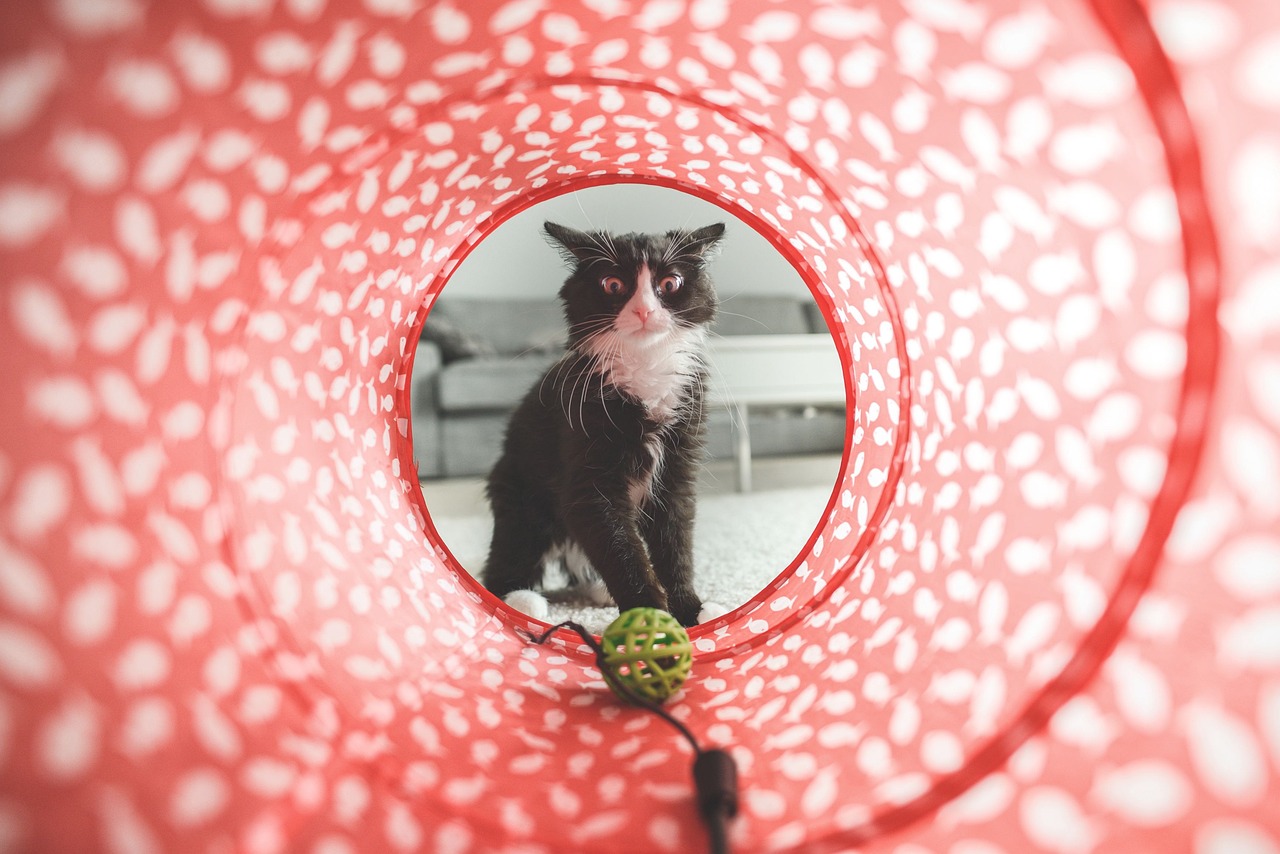
Training and Intelligence
Training a Manx cat can be one of the most rewarding experiences for a pet owner. These cats are not just adorable; they are also known for their intelligence and ability to learn commands and tricks quite easily. Imagine having a furry companion that not only curls up on your lap but also knows how to fetch a toy or come when called! However, this doesn't mean that training is without its challenges. Just like any other breed, Manx cats have their own quirks and personalities that can influence how quickly they pick up new skills.
One of the key aspects of training a Manx cat is understanding their playful nature. They thrive on interaction and mental stimulation, so incorporating play into training sessions can be incredibly effective. For instance, using a favorite toy as a reward can keep them engaged and excited about learning. You might find that they respond better to training when it feels like a game rather than a chore. This is important because, like a child who learns better through play, a Manx cat will be more inclined to participate if they’re having fun!
Moreover, consistency is vital. Establishing a routine helps your Manx cat understand what is expected of them. For example, if you’re teaching them to use a litter box, ensure that you place them in the same spot each time. Cats are creatures of habit, and they appreciate the predictability that comes with a structured environment. A little patience goes a long way, as some days they might seem more interested in chasing shadows than responding to commands!
Another important thing to keep in mind is that Manx cats are known for their curiosity. This means they often want to explore their surroundings, which can sometimes lead to distractions during training. To counter this, consider creating a dedicated training space that is free from distractions. This will help your cat focus better on the task at hand. Additionally, using positive reinforcement techniques, such as treats or affection, can significantly enhance their willingness to learn. A simple "good job!" or a gentle scratch behind the ears can make all the difference in encouraging good behavior.
In terms of their intelligence, Manx cats are often ranked among the more clever breeds. They can learn simple commands, recognize their names, and even understand cues from their owners. Here’s a quick overview of some common traits associated with their intelligence:
| Trait | Description |
|---|---|
| Problem Solving | Manx cats are adept at figuring out how to open doors or access hidden treats. |
| Social Learning | They can learn from observing other pets or humans, making them quick to pick up on new behaviors. |
| Memory | Manx cats have a good memory, allowing them to remember past experiences and training. |
In summary, training a Manx cat is an enriching journey that requires patience, consistency, and a good dose of fun. By leveraging their playful nature and intelligence, you can build a strong bond with your feline friend while teaching them valuable skills. Remember, the goal is not just to train them but to create a lasting relationship built on trust and understanding. So, grab some treats, find their favorite toy, and get ready to embark on an exciting training adventure!
- How long does it take to train a Manx cat? Training duration varies, but with consistent practice, you can see results in a few weeks.
- Are Manx cats easy to train? Yes, they are generally intelligent and eager to learn, making training easier.
- What is the best way to motivate my Manx cat during training? Use positive reinforcement, such as treats and praise, to keep them engaged.
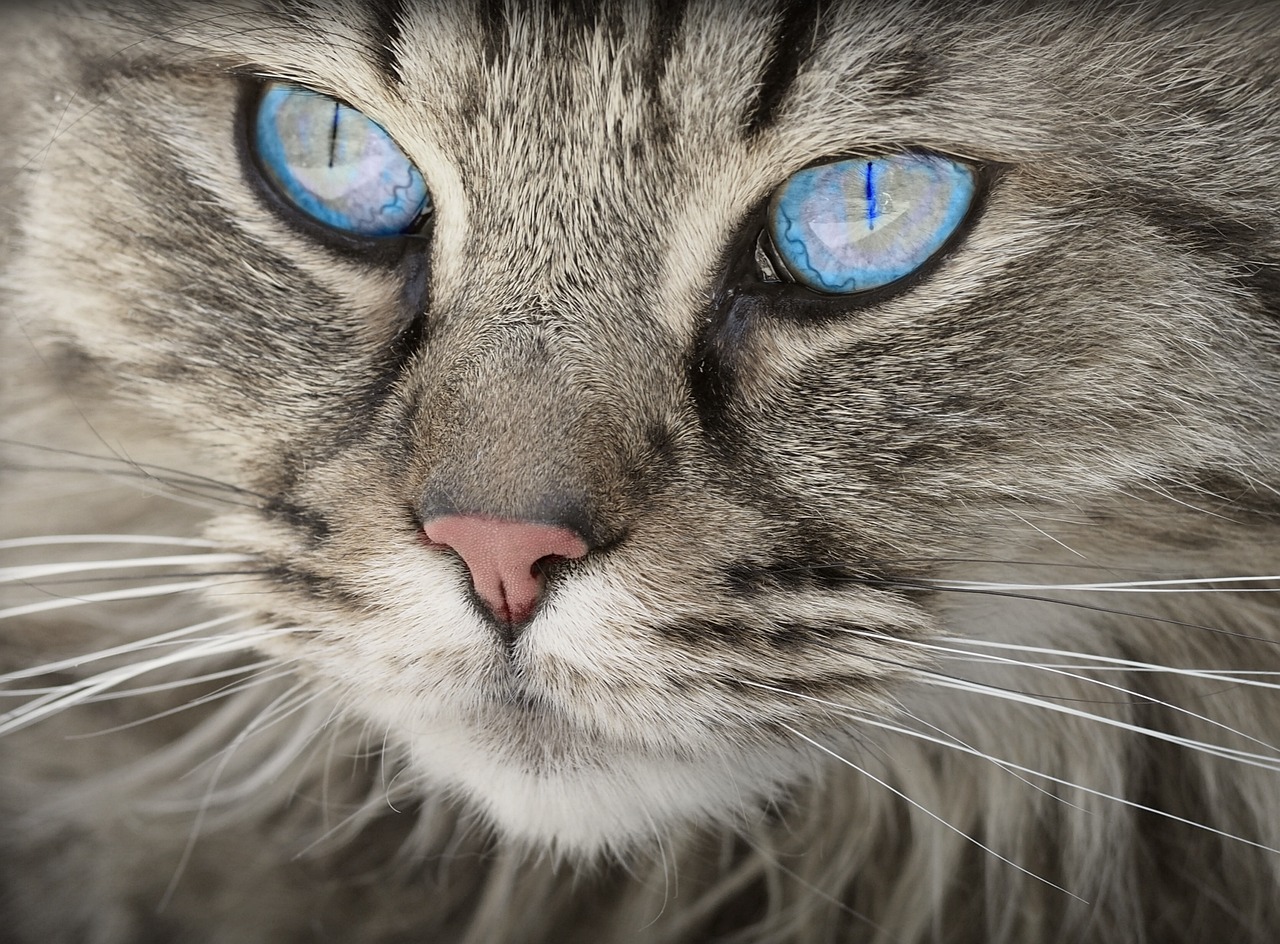
Health Considerations
When it comes to the health of your beloved Manx cat, understanding their unique predispositions is crucial. Like any breed, they come with specific health considerations that can affect their well-being and, consequently, their vibrant personality. One of the most notable health concerns for Manx cats is their genetic predisposition to spinal issues, particularly due to their lack of a tail. This condition, known as Manx syndrome, can lead to a variety of complications, including problems with mobility and bowel control.
It's essential to have regular veterinary check-ups to monitor any potential issues. Early detection is key, as it can significantly improve the management of these conditions. Additionally, ensuring that your Manx cat maintains a healthy weight is vital. Obesity can exacerbate existing health problems, so a balanced diet and regular exercise are paramount.
Here’s a quick overview of some common health issues that Manx cats may face:
- Manx Syndrome: A genetic condition that can cause spinal deformities.
- Urinary Tract Issues: Manx cats can be prone to urinary problems, so hydration is essential.
- Obesity: Due to their playful nature, keeping them active is crucial to prevent weight gain.
Aside from these specific conditions, Manx cats are generally hardy and can live long, fulfilling lives with proper care. Their average lifespan ranges from 12 to 15 years, but some can live even longer with the right attention. Regular vaccinations, a nutritious diet, and plenty of playtime can help keep your Manx cat healthy and happy.
As a responsible pet owner, it’s also important to be aware of the signs that your Manx cat may be unwell. Watch for changes in behavior, eating habits, or litter box usage. These can be early indicators of health issues that may require veterinary attention. Remember, a proactive approach to your cat’s health can lead to a longer, happier life together.
Here are some common questions about the health considerations for Manx cats:
- What is Manx syndrome?
Manx syndrome refers to a series of spinal deformities that can occur in Manx cats due to their genetic makeup. - How can I prevent obesity in my Manx cat?
Regular exercise, controlled portions of high-quality cat food, and interactive play can help keep your Manx cat at a healthy weight. - What vaccinations do Manx cats need?
Like all cats, Manx cats should receive core vaccinations such as rabies, feline distemper, and feline leukemia, as recommended by your veterinarian.
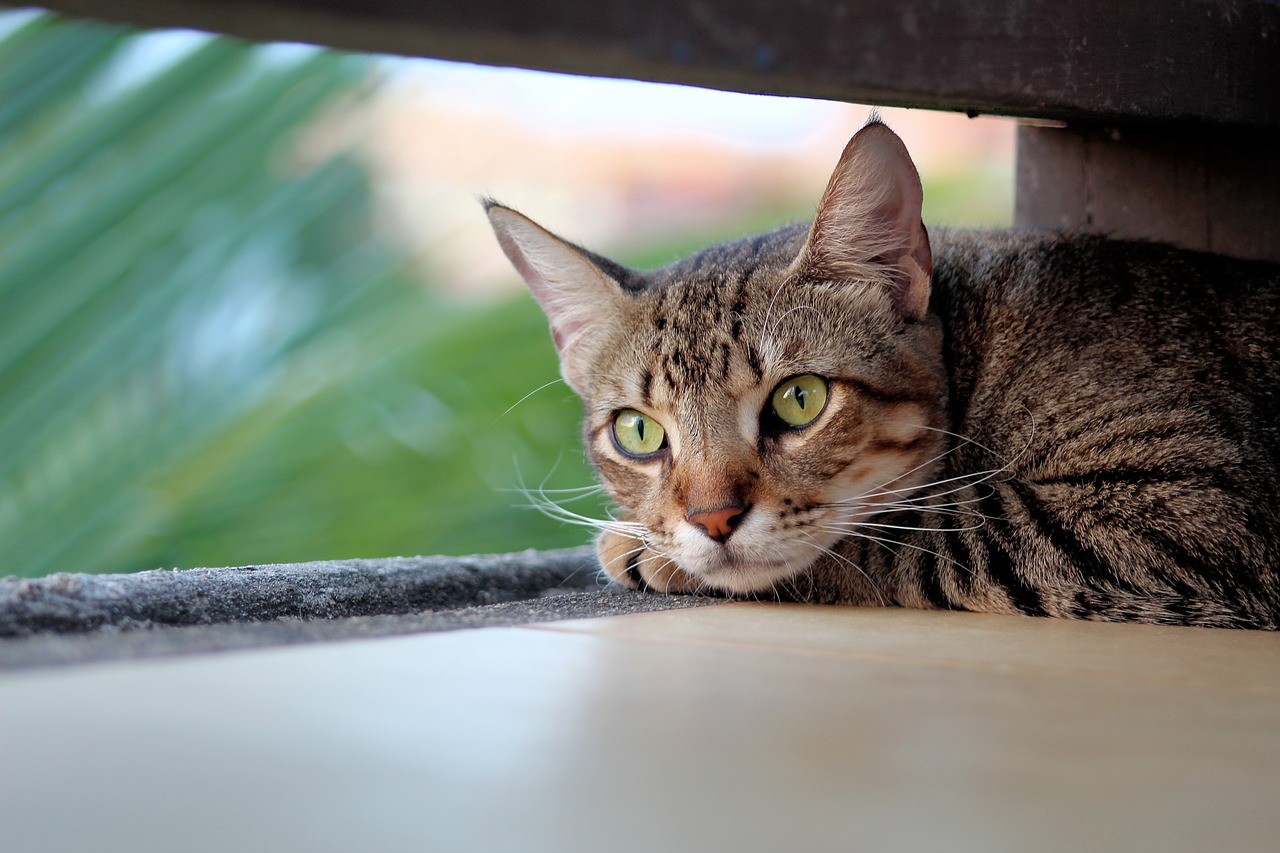
Lifespan and Care
The lifespan of a Manx cat typically ranges from 8 to 14 years, but with proper care, some have been known to live even longer. This longevity is often attributed to their genetics, health, and the love and attention they receive from their human companions. Just like any other pet, the way you care for your Manx can significantly impact their overall health and happiness. So, what does it take to ensure your Manx cat lives a long, fulfilling life?
First and foremost, a balanced diet is crucial. A high-quality cat food that meets their nutritional needs will help keep them healthy and energetic. It's important to pay attention to their weight, as obesity can lead to a host of health problems. Regular feeding schedules and portion control can help maintain their ideal weight. Additionally, fresh water should always be available to keep them hydrated.
Regular veterinary check-ups are another essential aspect of their care. These visits can help catch any potential health issues early on. Manx cats, while generally healthy, can be prone to certain genetic conditions, such as spinal defects or gastrointestinal issues. Regular screenings and vaccinations can help mitigate these risks and ensure your furry friend stays in tip-top shape.
Exercise is equally important for Manx cats. They are playful and energetic, so providing them with plenty of opportunities to play will keep them physically and mentally stimulated. Engaging them with toys, interactive games, or even a simple cardboard box can be a great way to encourage activity. Remember, a tired cat is a happy cat!
Moreover, grooming should not be overlooked. While Manx cats have a short coat, regular brushing can help reduce shedding and prevent hairballs. It's also a great way to bond with your pet. Make grooming a positive experience by using treats and gentle strokes, so your cat associates it with something enjoyable.
Finally, creating a safe and enriching environment is key. Manx cats are curious creatures, and they love exploring their surroundings. Cat trees, scratching posts, and safe spaces where they can retreat will keep them happy and less stressed. Moreover, providing mental stimulation through puzzle toys or training can help keep their minds sharp.
In summary, the care of a Manx cat involves a combination of proper nutrition, regular veterinary visits, exercise, grooming, and a safe living environment. By paying attention to these aspects, you can help ensure that your Manx cat enjoys a long, healthy, and fulfilling life.
- What is the average lifespan of a Manx cat? The average lifespan is between 8 to 14 years, depending on their health and care.
- Do Manx cats require special dietary needs? They do best on high-quality cat food that meets their nutritional requirements.
- Are there any specific health issues to be aware of? Yes, Manx cats can be prone to spinal defects and gastrointestinal issues.
- How much exercise do they need? Regular playtime and exercise are important to keep them happy and healthy.
- How often should I take my Manx cat to the vet? Regular check-ups at least once a year are recommended to monitor their health.
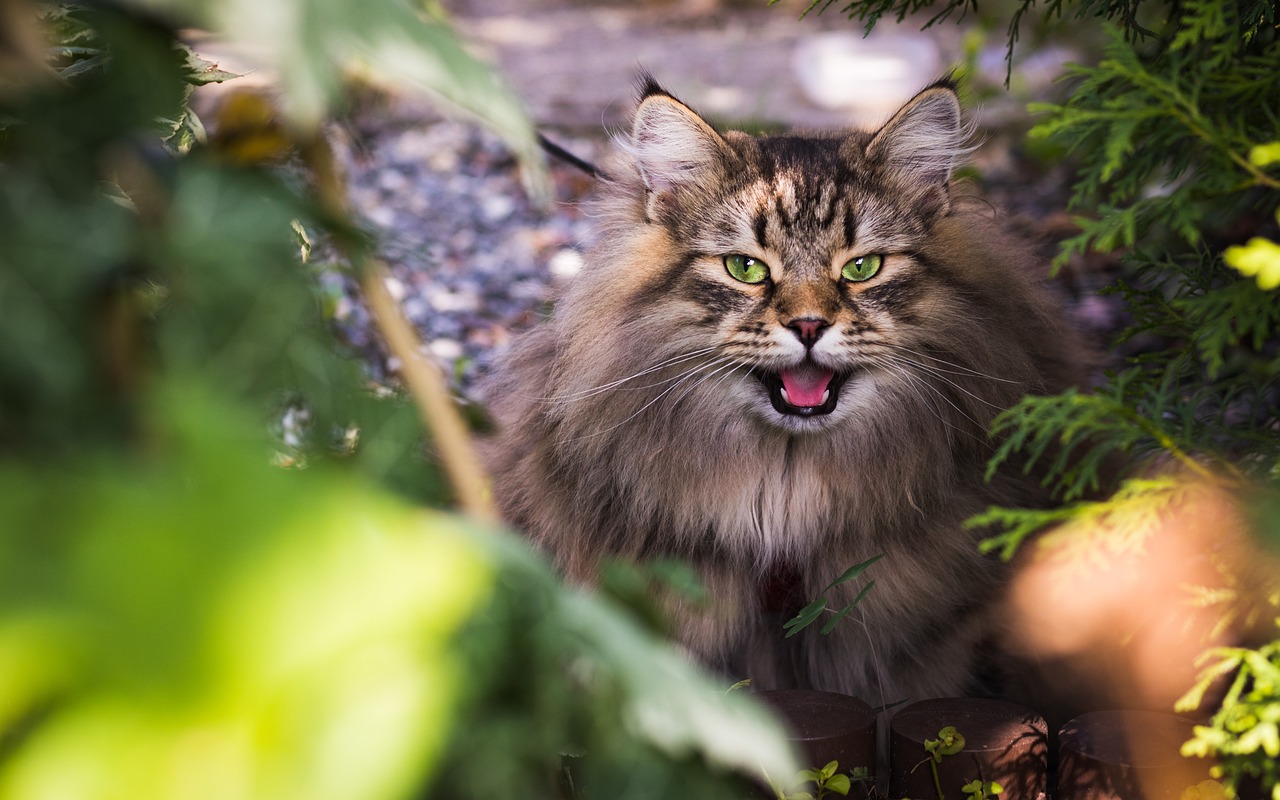
Conclusion
In conclusion, the Manx cat is not just a breed with a unique appearance; it is a bundle of personality wrapped in fur. Their distinct traits, such as the absence of a tail, add to their charm and allure, but it's their temperament that truly sets them apart. As we've explored throughout this article, these cats are not only affectionate and playful but also incredibly intelligent. They thrive on social interaction, making them wonderful companions for both families and individuals alike.
Potential owners should consider the following key points when thinking about adopting a Manx:
- Affectionate Nature: Manx cats are known for forming strong bonds with their human companions.
- Playfulness: Their playful demeanor ensures that they keep the household lively and fun.
- Social Behavior: They are friendly towards other pets, making them a great addition to multi-pet households.
- Training Capabilities: With their intelligence, training a Manx cat can be a fulfilling experience.
- Health Awareness: Being informed about potential health issues is crucial for ensuring a long and happy life.
Ultimately, if you're looking for a pet that is not only unique in appearance but also rich in personality and charm, the Manx cat is an excellent choice. Their combination of playfulness, affection, and intelligence makes them a delightful addition to any home, and their history adds an interesting layer to their character. So, if you're considering adopting a new feline friend, keep the Manx cat in mind; you may just find your perfect match!
Here are some common questions potential owners often have about the Manx cat:
- Do Manx cats require special care? While they have similar needs to other cats, being aware of their health considerations is important.
- Are Manx cats good with children? Yes! Their playful and affectionate nature makes them great companions for kids.
- How long do Manx cats typically live? With proper care, they can live anywhere from 12 to 15 years, sometimes even longer.
- What kind of diet is best for a Manx cat? A balanced diet rich in protein is essential for their health and vitality.
Frequently Asked Questions
- What is the origin of the Manx cat?
The Manx cat hails from the Isle of Man, where it developed its unique traits over centuries. The breed's history is steeped in local folklore, with tales of how they came to possess their signature tail-less appearance.
- Are Manx cats friendly with other pets?
Absolutely! Manx cats are known for their sociable nature. They typically get along well with other pets, showing a playful demeanor that can make them great companions for dogs and other cats alike.
- How do I train a Manx cat?
Training a Manx cat can be a fun adventure! Their intelligence allows them to learn quickly, especially when using positive reinforcement techniques like treats and praise. Start with simple commands and gradually introduce more complex tasks.
- What are common health issues in Manx cats?
Manx cats can be prone to certain health issues, such as spinal problems due to their genetic makeup. Regular vet check-ups and responsible breeding practices can help mitigate these risks and keep your feline friend healthy.
- What is the average lifespan of a Manx cat?
On average, Manx cats can live between 10 to 15 years, but with proper care, some may live even longer! A balanced diet, regular exercise, and routine veterinary care are key to ensuring a long, happy life.
- Do Manx cats require special grooming?
Manx cats have a dense coat that benefits from regular grooming. While they don't require extensive grooming like some long-haired breeds, brushing them weekly can help reduce shedding and keep their fur healthy.
- Are Manx cats good for families?
Yes! Manx cats are known for their affectionate and playful personalities, making them excellent companions for families. They tend to be gentle with children and enjoy being part of family activities.

